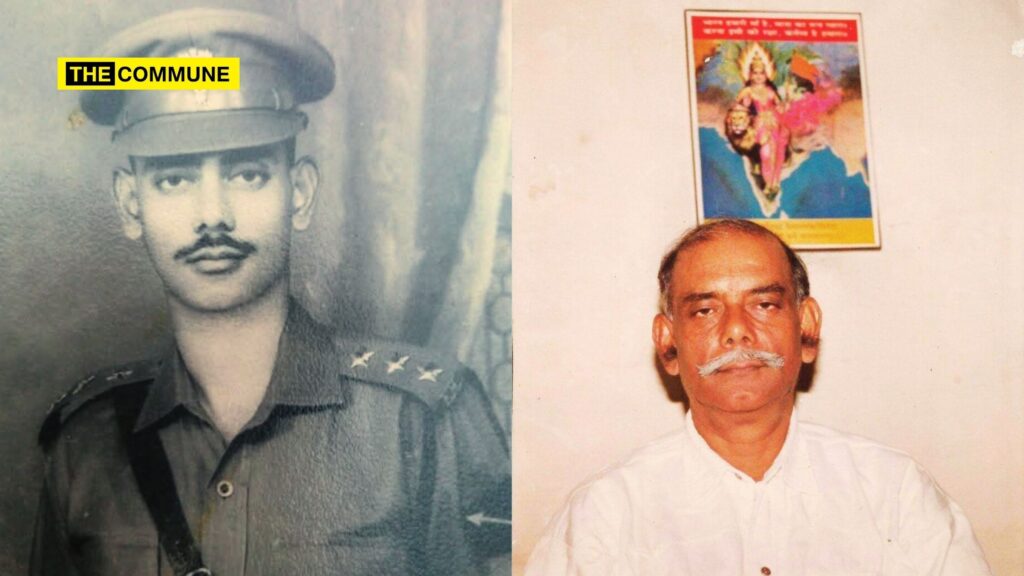Captain SP Kutty, born D Raman, was a man whose life embodied courage, resilience, and unwavering dedication to his faith and nation. From his early days as an Indian Army officer to his later years as a guiding force in Tamil Nadu’s Hindu renaissance, he lived with a singular mission: to serve India and uphold the values of Dharma. Personal sacrifices, relentless advocacy for Hindu cultural preservation, and a profound belief in the power of knowledge to uplift communities shaped his journey. He passed away on 26 November 2024.
D.ராமன் எனும் கேப்டன் S.P. குட்டி இறைவனடி சேர்ந்தார்.
கேப்டன் S. P. குட்டி அவர்கள்…
பாரத ராணுவத்தில் சேவை செய்து, பிறகு தமிழ்நாடு மின்சார வாரியத்தில் பணி புரிந்தவர்.ஹிந்து மதத்தின் மீது தீவிர பற்று கொண்டு செயல்பட்டவர். pic.twitter.com/iO4LuVOzae
— Hindu Munnani (@hindumunnani_tn) November 26, 2024
Kutty, a humble yet fierce leader, inspired thousands through his oratory, writings, and grassroots activism. Whether it was through organizing shakhas for the Rashtriya Swayamsevak Sangh (RSS), delivering fiery speeches at local temples, or translating the Bhagavad Gita into Tamil, he worked tirelessly to strengthen the spiritual and cultural foundation of his community. His life was a testament to the idea that true leadership is rooted not in titles, but in selfless service and unwavering commitment to truth.
Early Life And Military Service
In 1964, fresh out of engineering school, Kutty rejected familial pressure to convert to Christianity, choosing instead to serve India by joining the Indian Army. During the 1965 war, he was stationed in Punjab, where he contributed as an engineer in defense of the nation. While he was away, however, his family back in Tamil Nadu faced relentless proselytizing efforts, with many converting to Christianity. This personal experience ignited a lifelong commitment to preserving Hindu culture and traditions.
Awakening To The Bhagavad Gita
Kutty’s spiritual journey began when a relative dismissed the Bhagavad Gita as a divisive text. This spurred him to explore the Gita, initially encountering obstacles due to caste discrimination. Undeterred, he studied the text under Swami Mathurananda Maharaj and other mentors, ultimately mastering its teachings. His dedication transformed him into a leading proponent of Hindu intellectualism, determined to make the Gita accessible to all, regardless of caste.
Social And Cultural Leadership
Kutty’s contributions extended beyond personal enlightenment. Along with his wife Rohinibai, he established numerous shakhas (branches) of the Rashtriya Swayamsevak Sangh (RSS) in Tamil Nadu and organized religious classes for women and children. Together, they created a vibrant grassroots movement, culminating in the Hindu Dharma Vidhya Peetham, which provided a platform for Hindus to reconnect with their spiritual heritage.
Literary Contributions And Activism
An accomplished author, Kutty wrote extensively, including the influential serialized novel When Shall We See Our Sindhu Again?, inspired by the trauma of partition and the resilience of the Hindu community. His works, including commentaries on the Bhagavad Gita and analyses of the Kashmir conflict, cemented his reputation as a Dharmic warrior. He tirelessly countered missionary propaganda, distributing literature that empowered Hindus to defend their faith.
Trials And Triumphs
Kutty’s activism often put him in the crosshairs of opposition. He survived multiple assassination attempts, particularly during the 1982 Mandaikadu riots, where his unwavering courage inspired the Hindu community to stand firm. Despite constant threats, he remained dedicated to his cause, advocating for both spiritual strength and intellectual rigor within the Hindu community.
Legacy Of Service
Captain S.P. Kutty lived by the principles of the Bhagavad Gita, embodying the essence of a Karma Yogi. He was a relentless advocate for equality, challenging caste-based discrimination even within the organizations he supported. His home, aptly named “Charaiveti” (Keep Moving), symbolized his lifelong journey of service. His death marked the end of an era, but his legacy continues to inspire generations committed to the preservation of India’s cultural and spiritual heritage.
In the words of his admirers, Captain Kutty was not just a soldier of the battlefield but a soldier of Dharma—a beacon of light in the struggle for cultural and national identity.
டி. ராமன் என்கிற கேப்டன்
எஸ்.பி. குட்டி அவர்கள் இன்று 26/11/2024 செவ்வாய் காலை காலமானார்.கண்ணீர் அஞ்சலி
வீரவணக்கம்இந்திய ராணுவத்தில் பணியாற்றி பின்னர் தமிழகத்தில் மின்வாரிய அதிகாரியாக அரசு ஊழியராக பணியாற்றினார்.
ஆர் எஸ் எஸ் பேரியக்கத்தில் தன்னை இணைத்துக் கொண்டு தமிழகம்… pic.twitter.com/fSqA3FqDDY
— Arjun Sampath (@imkarjunsampath) November 26, 2024
What made Kutty remarkable was not just his commitment to his beliefs, but the warmth and humility with which he lived them. He was a soldier not only in the army but also in the larger battle for cultural revival, a man who faced both personal trials and societal challenges with the same steady determination. Whether standing firm against conversion efforts that divided his own family, or teaching the Bhagavad Gita to those denied its wisdom due to caste, Kutty’s life was a testament to the power of one individual’s resolve to make a difference.
(With inputs from Swarajya and Organiser)
Subscribe to our channels on Telegram, WhatsApp, and Instagram and get the best stories of the day delivered to you personally.

